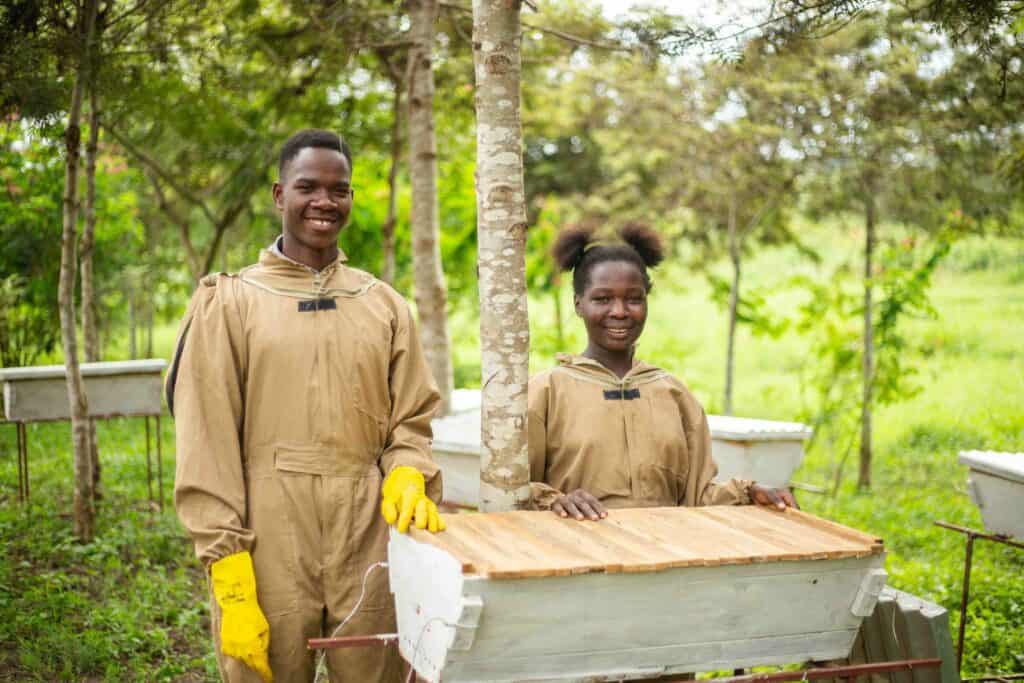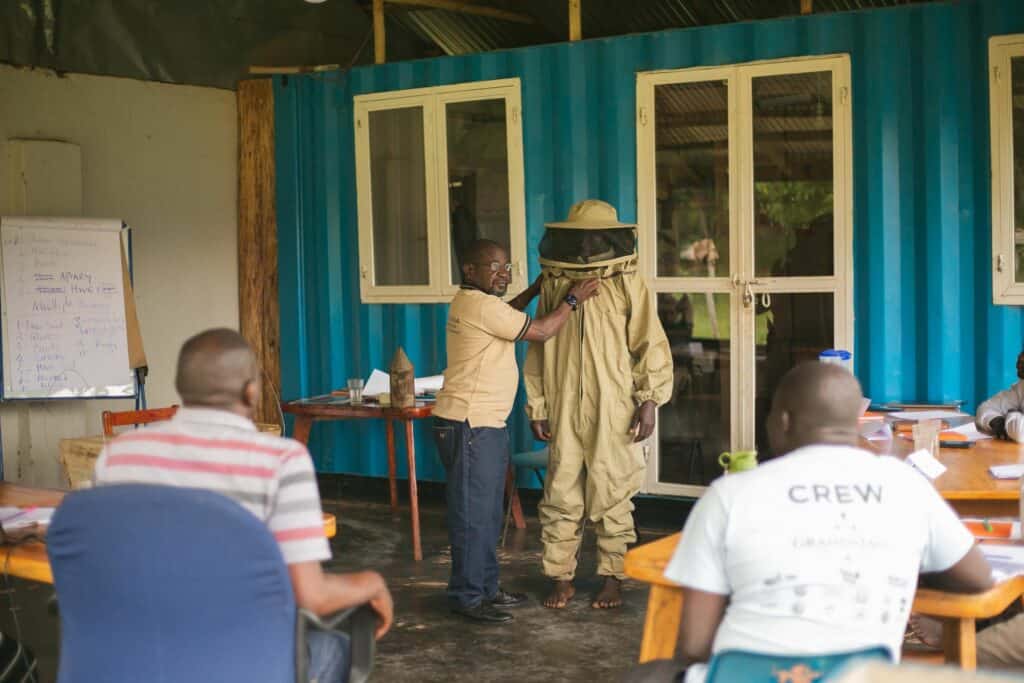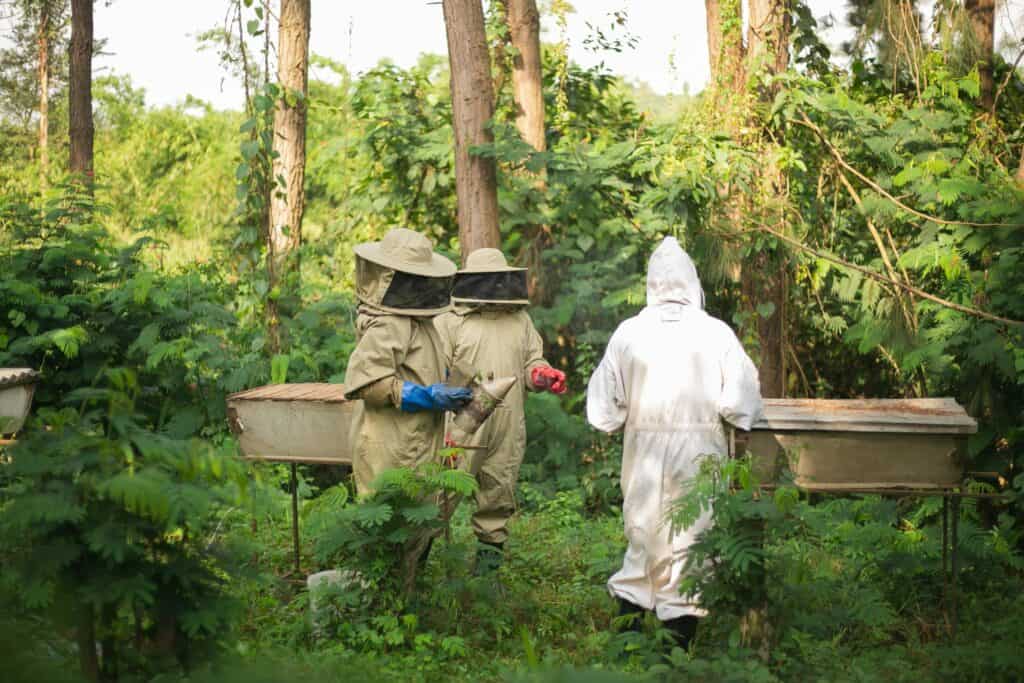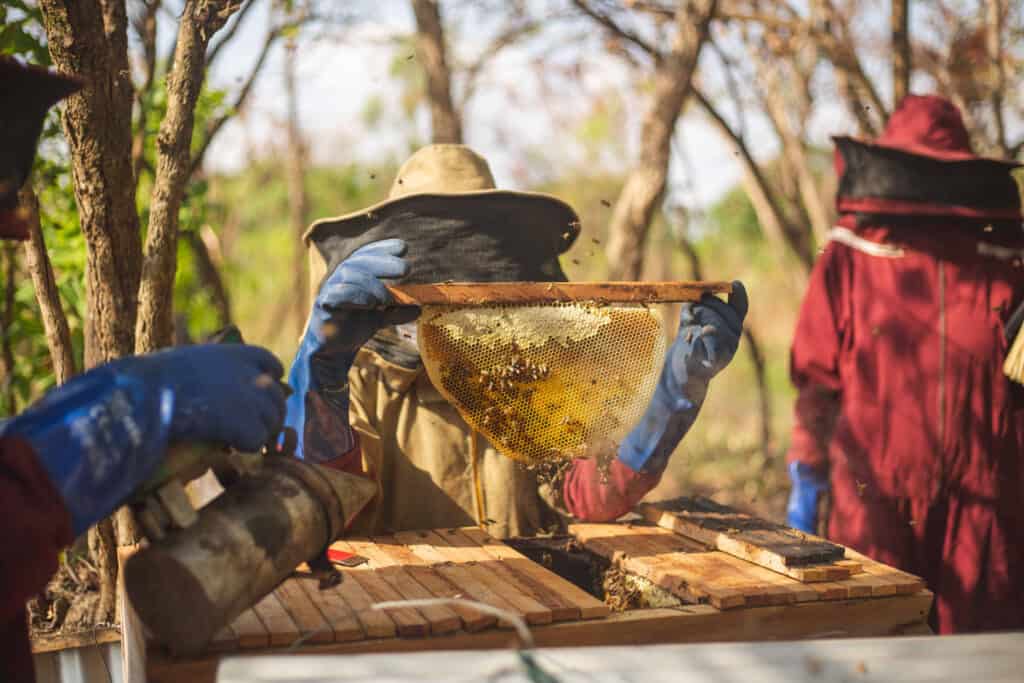Joel and Julian are budding beekeepers. Beekeeping is now a vocational track at Kira Farm Development Centre, with Joel and Julian excited to be among the first of the beekeeping cohort.
Uganda has huge potential to increase its honey production. Currently, the honey it produces is very low compared to domestic demand. Ethiopia produces about 50,000 metric tonnes of honey annually whereas Uganda only produces 4,000.
Joel explains,
Where I come from, beekeeping skills are absent and for most people the training is hard to access.”

Beekeeping Training
Joel and Julian and their fellow trainees have thrown themselves into learning beekeeping this year, developing a huge range of skills, including how to make and sell bee suits.
“We first learned the reasons why we rear bees are to get honey and wax, to get an income, to improve farming through better pollination and to look after the environment better.
Our curriculum has included the following topics:
- The life of the bee and the colony
- Beehives and how to construct them
- Beekeeping equipment and how to stay safe
- How to set up and manage an apiary
- Forage and crops and trees that support bees
- Honey harvesting and processing

We have learned in the classroom but most importantly we have learned to do the tasks ourselves practically at Kira’s three training apiaries.”
On Kira, beekeeping is also taught in conjunction with conservation farming, tree planting and business skills. The young people can see the huge opportunity beekeeping presents. Vincent, the trainer, has been delighted with “the good attitude the young people have shown in the project and the love they have for it.”

What can you tell us about bees and what they need in their environment?
Julian explains, “Bees are social insects which move and work together. They are categorised into three types:
- The queen bee is the fertilised female and her life span is about 2-3 years.
- The drone is the male bee; its life span is about 50 days and its role is to mate with the queen.
- Worker bees are also female, and they come from unfertilised eggs and their life span is from 30-35 days. And they do most of the work in the colony.
A place where bees are kept is called apiary. In the apiary, there should be flowering plants which are good for bees to collect nectar and pollen to make honey and propolis.”
What do you hope to do when you leave Kira?
“I want to engage in the production of honey through the keeping of bees and also teach other people about beekeeping. I hope my skills will help cover that gap in the community and also allow me to train other people especially the youth in the village so as to improve their lives,” explains Joel.
Julian adds, “After Kira Farm, I have a vision of opening up my own beekeeping project and my goal is to produce honey and sell it all over the country.”
Here is what it is like to inspect a beehive (the black dots are bees landing on the camera lens).

